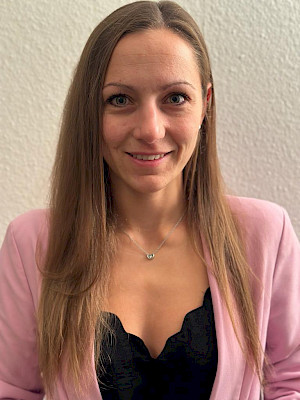Dr. Karin Bartel
Contact
University of Munich
Department of Pharmacy - Center for Drug Research
Drug Delivery
Butenandtstr. 5-13
81377 Munich
Germany
Room: B 2.094
Phone: +49-89-2180-77097
Email:
Research
Cancer-related diseases are still a major cause of death, however, therapy remains challenging, a cure is rarely achieved and incidences are still rising. We are interested in developing innovative treatment strategies for cancerous diseases. To unravel novel therapeutic targets and investigate cancer cell survival mechanisms, we use genetic tools, pharmaceutical modulators and RNAi formulations for pre-clinical studies. We are focusing our attention on the function of the endolysosomal system (ES) in the progression and development of chemoresistance of cancer and the modulation of the tumor-immune-interactions.
The Endolysosomal System
The ES is essential in the regulation of cellular transport, recycling, and repair processes and therefore important for tumor growth and metastasis formation. One major aim is to assess the role of the ES in cancer cell survival, cell death, and chemoresistance, especially its influence on other cellular organelles (e.g. mitochondria), in order to develop new therapeutic strategies. Therefore, we are highly interested in lysosomal membrane transporters and ion channels, such as the cation channel families of mucolipins (TRPMLs) and two-pore channels (TPCs). Furthermore, ES properties and function are essential for nano-carrier-based drug delivery systems. We are therefore highly interested in unraveling and influencing ES escape modes of delivered therapeutics to increase therapeutic efficacy.
Tumor-Immune interactions
It is nowadays very clear, that interactions between tumor cells and the immune system are highly relevant in the development, progression, and eradication of cancer. However, the exact mechanisms of the bilateral influence between cancer and immune cells are highly variable and not fully understood. We are interested in the manipulation ES function in cancer cells and monocytes or macrophages in order to deepen our understanding of tumor-immune cell interactions and to manipulate it in order to promote an anti-tumor immune response.
People
Current Funding
DFG research grant “Overcoming chemoresistance in cancer by manipulating lysosomal function”
DFG research grant “Endolysosomal cation channels as novel targets for cancer therapy”
Recent Publications
L. Ouologuem, A. Kübler, S. Ouologuem, A. Hadzic, J. B. Stöckl, A. C. Siciliano, S. Forciniti, S. Nigro, H. Iuele, V. Onesto, A. Nguyen, D. Matzek, C. Abrahamian, C. Grimm, B. Popper, G. Gigli, L. L. del Mercato, O. M. Merkel, T. Frohlich, S. T. and K. Bartel, Loss of Two-pore channel 2 enhances CD8+ T cell cytotoxicity and directly impairs tumour growth via MAPK axis in HCC, Front. Immunol.; doi: 10.3389/fimmu.2025.1668066 (2025)
Abrahamian C*, Tang R*, Deutsch R*, Ouologuem L*, Weiden EM, Kudrina V, Blenninger J, Rilling J, Feldmann C, Kuss S, Stepanov Y, Scotto Rosato A, Calvo GT, Soengas MS, Mayr D, Fröhlich T, Gudermann T, Biel M, Wahl-Schott C, Chen CC, Bartel K and Grimm C. Rab7a is an enhancer of TPC2 activity regulating melanoma progression through modulation of the GSK3β/β-Catenin/MITF-axis. Nat Commun 15, 10008 (2024). https://doi.org/10.1038/s41467-024-54324-9
Frey N*, Ouologuem L*, Blenninger J, Siow WX, Thorn-Seshold J, Stöckl J, Abrahamian C, Fröhlich T, Vollmar AM, Grimm C, Bartel K: Endolysosomal TRPML1 channel regulates cancer cell migration by altering intracellular trafficking of E-cadherin and β1-integrin.
J Biol Chem. 2024 Jan;300(1):105581. doi: 10.1016/j.jbc.2023.105581.

